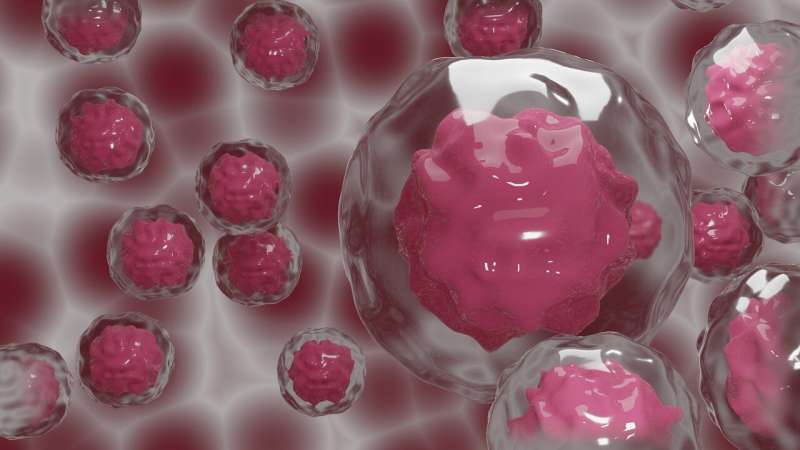Investigators uncover cellular pathway involved in cancer growth

The Cedars-Sinai investigators discovered several key components in the control of telomerase reverse transcriptase, or TERT, expression, one of the necessary component proteins of telomerase. High levels of TERT are found in several cancer types, the result of mutations in DNA that control the levels of TERT in cells, the so-called "promoter" DNA.
Targeted therapies for impeding telomerase already have been developed and tested in clinical trials, but these trials have largely been unsuccessful, said Dan Theodorescu, MD, Ph.D., director of Cedars-Sinai Cancer and the corresponding author for the study, published Sept. 13 in The Proceedings of the National Academy of Sciences. The study was conducted in laboratory mice and human cells.
"Therapies targeting telomerase activity have been challenging to develop because this protein complex is essential in normal stem and progenitor cells," Theodorescu said. Progenitor cells are descendants of stem cells that create specialized cell types. "In this study, we sought to solve the problem by finding an effective way to block telomerase levels driven specifically by mutations found only in cancer cells. We used bladder cancer as a model for this work, but it may potentially be applicable to other cancers with similar mutations."
Using an innovative, CRISPR-based functional genomic screening and reporter system, the investigators discovered that a protein called TRIM28, which helps convert DNA into RNA, activates the expression of TERT. Another protein, known as TRIM24, represses TERT expression. When these two interact, TRIM24 grabs onto TRIM28 and prevents it from making TERT protein, in turn reducing telomerase activity and helping to prevent cancer cell proliferation.
The researchers also discovered that a third protein called mTORC1 can activate TRIM28 by adding a modification called phosphorylation to this protein. This process prevents TRIM28 from interacting with TRIM24. That, in turn, allows TERT to be expressed and telomerase to be activated.
The investigators discovered that the drug Ridaforolimus successfully suppressed mTORC1, prompting TRIM28 activation and inhibiting TERT and the growth of cancer cells.
"Additional, specific inhibitors of mTORC1 such as Ridaforolimus, or direct inhibitors of TRIM28 interactions with mutant TERT promoter, may provide treatment options to prevent telomerase from allowing cancer cells to grow in cancer patients with TERT promoter mutations," Theodorescu said. "By laying the conceptual framework and using novel tools to show that promoter mutation-directed therapy may be possible, we hope that this study may lead to novel telomerase-directed cancer treatments that have reduced effects on healthy cells that need this protein to function normally."
More information: Neeraj Agarwal et al, TRIM28 is a transcriptional activator of the mutant TERT promoter in human bladder cancer, PNAS (2021). doi.org/10.1073/pnas.2102423118


















